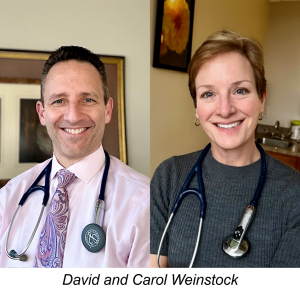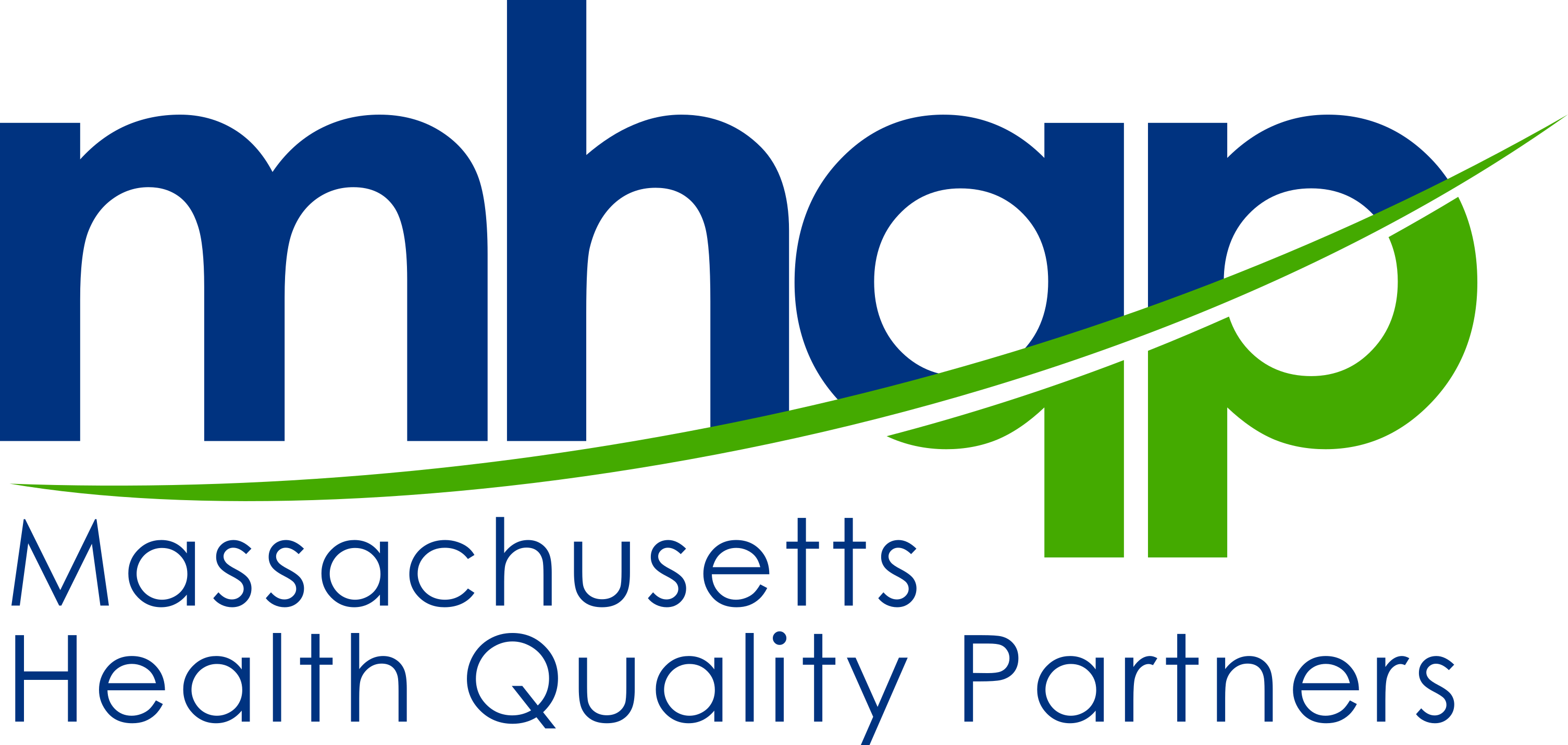Award Winning Primary Care Practice Increasingly Challenged to Survive in Today’s Environment
(March 2024)
 “The joy I get from caring for patients, there’s not a more rewarding experience. That’s the one piece that really keeps me going back to work.”
“The joy I get from caring for patients, there’s not a more rewarding experience. That’s the one piece that really keeps me going back to work.”
That’s how David Weinstock, DO, of Grove Medical Associates in Auburn, Massachusetts, describes why he loves being a primary care physician. He shares these patient-focused values with the other providers and staff at the practice, including his wife Carol, who is a nurse practitioner.
The net effect of those values is clear. Grove Medical is one of only a handful of practices in Massachusetts that have received an MHQP Patient Experience Award every year since 2018, when MHQP first began issuing the awards to the primary care practices that ranked highest on its annual statewide Patient Experience Survey.
But while Grove Medical has distinguished itself in the experiences of their patients, their own experience shows that, in the current environment, achieving excellence in patient care might not be a remedy for systemic problems.
All About Relationships
Dr. Weinstock’s desire to be a primary care physician began to form long before he entered medical school, when he worked in an ultrasound vascular department at Lahey Clinic.
“I was constantly seeing patients who had vascular and circulation problems, a lot of patients who smoked or had diabetes,” he recalls. “Seeing this end stage disease process, I began asking, ‘Where did this start?’ and ‘What can we do to prevent it?’”
He also came to appreciate the longitudinal relationships with some of the patients.
“Over the four years I was there, we would see some of the same patients. It was great seeing people over a period of time. I really enjoyed that part,” he says.
After going to medical school at the Philadelphia College of Osteopathic Medicine, he came to Worcester on a rotation at St. Vincent’s Hospital — and he never left. He was a resident there from 1999-2002 and was the Chief Resident from 2002-2003.
Along the way, he met Drs. Jack Kelly and Dennis Murphy, who had started Grove Medical in 1988.
“Their interpersonal relationships with their patients were exactly what I wanted,” he says. “I really enjoy helping patients understand and get what they want. I try to do what’s right for them as people and as patients.”
He joined the practice in 2003 and became a partner in 2008.
Strain on Staff
At its height, Grove Medical boasted five primary care physicians and a physician’s assistant — and the practice was thriving. Now, the practice has shrunk to two PCPs and a PA. Like most other independent practices, Grove has found it challenging to recruit and retain employees.
“We can’t compete with the salaries and benefits offered by larger hospital systems,” Dr. Weinstock says. “That puts a constant strain on our staff and resources.”
The day we spoke with Dr. Weinstock, his wife Carol was spending her time printing out medical records for patients.
“Every person in the office literally works probably 2-4 different jobs all at once,” says Carol. “Yesterday, our triage nurse called out sick, so our office manager had to cover triage, plus do her job, plus help cover for the medical assistants who left. Here I am, a clinician, filling in for medical records.”
“It has always been challenging enough just getting our clinical notes done,” continues Dr. Weinstock. “But when you layer in all the other things we’re responsible for, it just gets that much more complicated.”
Sounding the Alarm Bells
Despite his passion for and belief in primary care, Dr. Weinstock has been sounding alarm bells about the challenges currently confronting independent primary care practices.
“The amount of time, energy and effort it takes to provide the highest quality care, it has taken every bit out of our lives. The burden on primary care, whether it is the payment challenges or the administrative pieces, they’re just more onerous today than they used to be. It has become exponentially unmanageable,” Weinstock says — as he pauses to check a text message from a patient.
One place where he has been extremely vocal is on LinkedIn — which is where we first noticed him commenting on a post about MHQP’s work on scorecards that measure the health of primary care. He said:
“I can measure the health of primary care; I don’t need metrics – it’s being strangled and suffocated by the system:
- Follow ups from ED, urgent care, hospital discharges, and rehab discharges
- ED overflow or leaving without being seen
- VNA orders for all the above patients
- All referrals to all specialist
- PAs for too many medications
- Formulary changes and med shortages requiring new prescriptions
- Documentation and over burden EHR requirements
- Claim denials and overly complex billing practices
The list goes on and on with things that interfere with face-to-face hands-on patient care.”
Elsewhere, he has written that, “The challenges of private practice are becoming insurmountable,” and that “We are barely hanging on.”
Unsustainable
Dr. Weinstock’s most significant area of concern is the decline in financial support for primary care.
“The amount of burden that falls on us is unsustainable at the current pace without the financial support we need,” he says. “We get nickled and dimed for payments across the board. Our costs have increased, but unlike most other businesses, there is no way to pass on the added cost. Fee schedules are often locked in 2-3 years without adjustment for inflation. And most business principles, like demand for services for an outstanding practice, can’t be monetized in a traditional medical practice.”
His most fervent complaint is about systemic delays in payments for many of the services the practice provides.
“The amount of money that gets caught up and delayed is a big burden,” he says. “Optimistically, I hope by May or June of this year (2024), we’ll get our payment for our commercial insurance from 2022. It takes a year and a half to get those dollars.”
Dr. Weinstock wants to make it clear that his concern is not about his personal finances — it’s about having the resources necessary to keep the practice alive and able to continue providing high quality care to its patients.
He also wants patients to understand that many primary care practices are unsustainable under the current conditions.
“It’s important to educate the public about where healthcare dollars are going and the small percentage that goes to direct patient care,” he says. “They need to understand that if we don’t change things, they are not going to have the choices that they want and they’re not going to have that doctor who they’ve trusted.”
